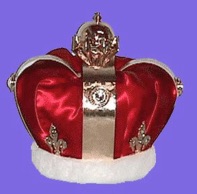Study to shew thyself approved unto God, a workman that needeth not to be ashamed, rightly dividing the word of truth. 2 Tim. 2:15

King James AV1611
The Kings of Israel
The Kings of Israel was taught by Dr. James Modlish
Lesson Two
-Saul-
(I Sam. 9)
Introduction:
Saul is a study of incredible contrast. He is representative of so many people who possess great possibilities but never allow those things to find their fulfillment. Prayerfully, we will gain a better perspective of our potential, used or lost, by studying Saul’s life.
I. His early promise
A. Striking physical superiority - I Sam. 9:2
Physical presence is not an advantage with God, but it is with men and can be used to direct them to God!
Qualities of disposition:
Modesty - I Sam. 9:21,22
Discreet - I Sam. 10:26,27
Generous spirit - I Sam. 11:11-13
Very considerate of others - I Sam. 9:5
Capacity for strong love - I Sam. 16:21
Intolerance for those who were evil - I Sam. 28:3
Special equipment given to him by God - His first equipment was himself - you only need what God gives you. I Cor. 12:18
Inspired Word that “God is with thee.” - I Sam. 10:7
God gave him another heart - I Sam. 10:6,9
The Spirit of God - I Sam. 10:10
Surrounded by men whom God had touched - I Sam. 10:26
II. His later decline
God’s intention was to free the Israelites from the Philistines (9:16). Saul reigned two years and picked a small army and purposely offended the Philistines by attacking one of their garrisons. 13:1-4
Saul was told to wait seven days in Gilgal for Samuel. 13:8
A. Irreverent presumption - 13:8-14 (Ps. 19:13) Presumption always starts a downward trend.
To presume sin needs no forgiveness – I John 1:8
To presume there is no Hell - Mark 9:43-48
B. Rash willfulness - I Sam. 14:24-30
C. Disobedience and deceit - 15:10-23
Saul is told to completely destroy the Amalekites. At this point Saul’s decline is steep - 16:14. Three times Saul tries to kill David. He realizes that he is actually fighting God. - 24:20
Every now and then his better side breaks through, but its protest becomes weaker and weaker --- he allowed sin to reign
(Rom. 6:9-17) He has engraved his own epitaph: “I have played the fool.” - 26:21
III. His final failure
This last, tragic drama of Saul’s life is in chapters 28-31. His downward course at length brings him to the witch of Endor. A man who enjoyed counsel from heaven now traffics with the underworld. The next day he ended his life a suicide on the battlefield.
(John 8:44)
Lessons to be observed:
The one vital condition for the true fulfillment of life is obedience to the will of God. Saul was called to a theocratic kingship -- he was never meant to have absolute power. We are all meant to be a kind of theocracy. He was anointed by God to be the executor of a will higher than his own.
To let “self” get the upper hand in our lives is to miss the best and court the worst.
Our worst enemies are not our circumstances but ourselves. (Rom. 8:5,6)
Advantages are not in themselves a guarantee of success. (Phil. 3:4-8)
The greatest opportunities which can come to us are not in themselves enough to
give life its highest fulfillment. (Phil. 3:12-15)
Not even spiritual gifts certify ultimate achievement. (II Cor. 12:12,13)
NOTE:
One of the greatest contrasts in all the Bible is the Saul of the Old Testament and the Saul of the New Testament. One ends life as a loser and the other as a winner. II. Tim. 4:7,8
-Page Navigation-
Lessons: 1 | 2 | 3 | 4 | 5 | 6 | 7 | 8 | 9 | 10 | 11 | 12 | 13 | 14 | 15 | 16 | 17 | 18 | 19 | 20 | 21

